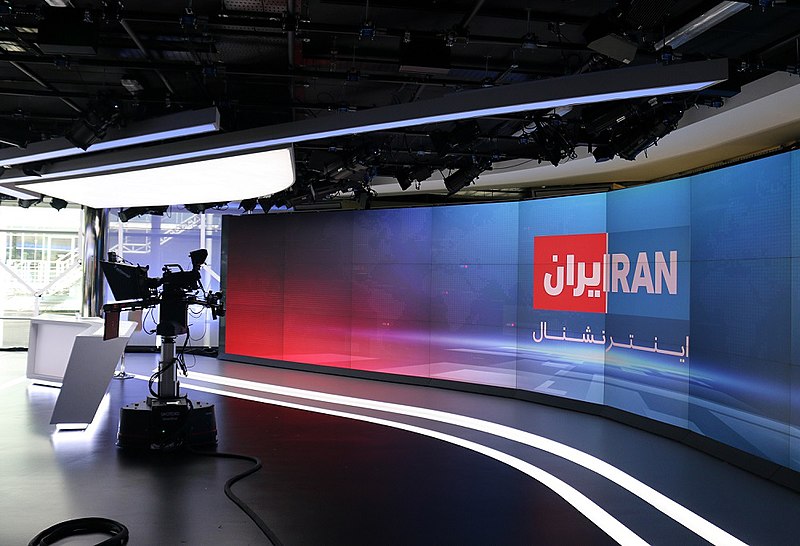A Farsi-language satellite news channel based in London long critical of Iran’s theocratic government said Saturday it had moved its broadcasts to Washington “to protect the safety of its journalists” after being targeted by Tehran.
The targeting of Iran International comes as Tehran also has long harassed members of the BBC’s Persian service for their work reporting on the country. However, the threats against Farsi-language networks broadcasting abroad have exponentially grown as they cover the nationwide protests that have rocked Iran since September — providing information otherwise unheard across the Islamic Republic’s state-controlled television and radio networks.
Iran International described making the decision after London’s Metropolitan Police told it “about the existence of serious and immediate threats to the safety of Iranian journalists” working there.
Reached for comment, Iran International referred to a statement saying that “threats had grown to the point that it was felt it was no longer possible to protect the channel’s staff” or the public around its studio in London.
“A foreign state has caused such a significant threat to the British public on British soil that we have to move. Let’s be clear this is not just a threat to our TV station but the British public at large,” the channel’s general manager Mahmood Enayat said. “Even more this is an assault on the values of sovereignty, security and free speech that the U.K. has always held dear.”
Enayat added: “We refuse to be silenced by these cowardly threats. We will continue to broadcast. We are undeterred.”
The head of the Metropolitan Police’s counterterrorism unit, Assistant Commissioner Matt Jukes, acknowledged giving advice to Iran International about the threat and moving its operation.
Jukes said in a statement that police and the domestic intelligence service MI5 had foiled “15 plots since the start of 2022 to either kidnap or even kill British or U.K.-based individuals perceived as enemies of the regime,” without elaborating.
“We also appreciate that talking to a media company about moving their operations from a particular location — even though it is due to grave safety concerns — is exceptional. The advice to relocate has not been given lightly,” Juke said. “The situation that journalists face around the world and the fact that some journalists face such hostile intentions of foreign states whilst in the U.K. is a challenging reality that we are determined to confront.”
Iran’s mission to the United Nations did not immediately respond to a request for comment.
Iran International tied its decision to London police days earlier announcing the arrest and charging of Austrian national Magomed-Husejn Dovtaev, 30, with allegedly “collecting information of a kind likely to be useful to a person committing or preparing an act of terrorism.”
Police say they arrested Dovtaev a week ago at London’s Chiswick Business Park, home to the offices of Volant Media UK Ltd., the owner of Iran International. Police had placed armed officers around the channel in November over threats against it.
It wasn’t immediately clear if Dovtaev had a lawyer.
Voltant Media, once majority-owned by a Saudi national, also broadcasts another channel called Afghanistan International.
Iran International has focused intensely on the nationwide protests that have swept Iran since the September death of Mahsa Amini, an Iranian-Kurdish woman earlier detained by the country’s morality police. Iran’s Intelligence Ministry describes the channel as a “terrorist organization.”
“Its operatives and affiliates will be pursued by the Ministry of Intelligence,” Intelligence Minister Esmail Khatib said in November. “And from now on, any kind of connection with this terrorist organization will be considered to be tantamount to entering into terrorism and a threat to the national security of the Islamic Republic of Iran.”
That same month, the broadcaster said the Metropolitan Police warned that two of its British-Iranian journalists faced threats from Iran that “represent an imminent, credible and significant risk to their lives and those of their families.” Meanwhile, another outspoken critic of Iran’s government living in the U.S. has faced multiple alleged plots by Tehran targeting her.
The BBC in February filed a separate complaint to the United Nations saying there were “increased security concerns for BBC News Persian journalists in the light of extraterritorial threats.”
(AP)











